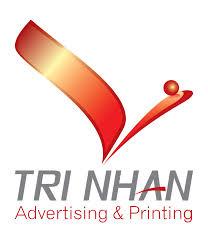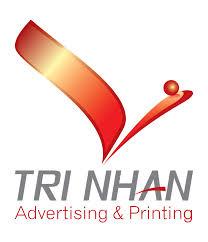The Solar Charge Controllers Market Trends indicate increasing adoption of advanced controllers for off-grid and grid-tied solar systems to optimize battery performance and energy efficiency. As Per Market Research Future, rising solar installations, technological innovations, and renewable energy initiatives are shaping the global solar charge controllers market.
Solar charge controllers are critical components in solar power systems, regulating the voltage and current from solar panels to batteries and preventing overcharging or deep discharge. They enhance battery life, system efficiency, and overall reliability of solar installations. The latest Solar Charge Controllers Market Trends show robust growth driven by increasing solar adoption, technological advancements, and the rising need for energy-efficient power management.
Rising Adoption of Solar Energy Systems
With growing awareness of renewable energy and the need to reduce dependence on fossil fuels, both residential and commercial sectors are increasingly installing solar power systems. Solar charge controllers are essential for managing energy flow efficiently, particularly in off-grid and hybrid setups.
As Per Market Research Future, the global transition to renewable energy and increasing solar installations are key drivers of market growth.
Technological Advancements Driving Growth
Technological innovation in solar charge controllers is improving efficiency, monitoring, and protection for solar energy systems. Key developments include:
-
MPPT (Maximum Power Point Tracking) Controllers: Maximizing energy extraction from solar panels.
-
PWM (Pulse Width Modulation) Controllers: Offering cost-effective solutions for smaller systems.
-
IoT-Enabled Smart Controllers: Allowing remote monitoring, energy analytics, and predictive maintenance.
-
Enhanced Battery Protection Features: Preventing overcharging, deep discharging, and extending battery lifespan.
These innovations contribute significantly to the Solar Charge Controllers Market Trends, supporting efficient and reliable solar energy utilization.
Applications Across Sectors
Solar charge controllers are widely used in multiple applications:
-
Residential Solar Systems: Ensuring battery protection and optimizing power usage for homes.
-
Commercial and Industrial Installations: Supporting uninterrupted energy supply for businesses and factories.
-
Off-Grid Power Solutions: Providing reliable power in remote locations, telecom towers, and rural areas.
-
Hybrid Solar Systems: Integrating solar with other energy sources to ensure efficiency and stability.
As Per Market Research Future, diverse applications across sectors drive global adoption of solar charge controllers.
Energy Efficiency and Environmental Drivers
With growing concerns about energy conservation and environmental sustainability, efficient energy management is crucial. Solar charge controllers regulate the power from panels to batteries, minimizing energy loss and reducing carbon footprint.
As Per Market Research Future, environmental awareness and energy efficiency initiatives are major factors propelling market growth.
Regional Market Insights
The solar charge controllers market is expanding across major regions:
-
North America: Driven by residential solar adoption, commercial renewable projects, and supportive policies.
-
Europe: Adoption fueled by government incentives, green building initiatives, and off-grid installations.
-
Asia-Pacific: Rapid urbanization, increasing off-grid demand, and government renewable energy targets boosting growth.
-
Middle East & Africa: Expansion supported by off-grid solar power projects and rural electrification initiatives.
As Per Market Research Future, regions with strong renewable energy policies and increasing solar penetration are witnessing faster adoption of advanced solar charge controllers.
Investment Trends and Industry Development
Investment in smart, high-efficiency solar charge controllers is rising as solar system owners demand better energy management, monitoring, and protection features. Companies are focusing on developing MPPT and IoT-enabled solutions to enhance system performance.
As Per Market Research Future, ongoing investment in technology, infrastructure, and system integration will sustain long-term market growth.
Challenges and Opportunities
Challenges include high upfront costs for advanced controllers, lack of awareness in emerging markets, and technical complexities in integration. Opportunities exist in off-grid solar expansion, hybrid system development, IoT-enabled smart controllers, and rural electrification projects.
Future Outlook
The solar charge controllers market is expected to grow steadily due to increasing solar energy adoption, energy efficiency needs, and technological advancements in power management systems.
As Per Market Research Future, innovations in MPPT controllers, IoT integration, and hybrid energy solutions will continue to drive global adoption, ensuring efficient and reliable solar energy utilization.
FAQs
1. What factors are driving growth in the solar charge controllers market?
Growth is fueled by rising solar installations, energy efficiency needs, technological advancements, and off-grid power requirements.
2. Where are solar charge controllers commonly used?
They are used in residential solar systems, commercial and industrial installations, off-grid setups, and hybrid solar energy solutions.
3. How is technology influencing the solar charge controllers market?
Advances in MPPT, PWM, IoT-enabled monitoring, and battery protection enhance efficiency, reliability, and system longevity.
More Related Reports:
Industrial Hydraulic Power Unit Market
Fuel Cell Balance Of Plant Market


